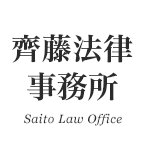Best Restructuring & Insolvency Lawyers in Tokyo
Share your needs with us, get contacted by law firms.
Free. Takes 2 min.
List of the best lawyers in Tokyo, Japan
About Restructuring & Insolvency Law in Tokyo, Japan
Restructuring and insolvency law in Tokyo, Japan involves the legal processes and frameworks that help businesses and individuals address financial difficulties. This area of law is designed to provide fair solutions for debtors who cannot meet their financial obligations and to protect the rights of creditors. Japan's restructuring and insolvency system emphasizes corporate rehabilitation, legal reorganization, debt restructuring, and in severe cases, liquidation. Whether preventing bankruptcy or dealing with insolvency proceedings, understanding your rights and obligations under Japanese law is essential for making informed decisions.
Why You May Need a Lawyer
Seeking the assistance of a lawyer in restructuring and insolvency matters is crucial for various reasons. Common situations where legal help is needed include:
- You or your company are facing severe financial distress and are unable to pay debts when due
- You need guidance on voluntary or court-ordered restructuring options like corporate rehabilitation or civil rehabilitation proceedings
- Creditors are taking legal action or threatening foreclosure
- You want to negotiate with creditors for debt restructuring, moratoriums, or settlements
- There is a risk of personal liability as a director or key stakeholder in a company
- Legal advice is needed regarding bankruptcy filing, liquidation, or asset protection
- You are a creditor seeking to recover debts from insolvent companies or individuals
- Complex cross-border debts or international insolvency issues arise
A lawyer can help you navigate complex legal requirements, protect your interests, and increase the likelihood of a favorable outcome during financial distress or insolvency.
Local Laws Overview
Key aspects of restructuring and insolvency law in Tokyo, Japan include several statutes and processes:
- Corporate Reorganization Act (Kaisha Kousei Hou): Focuses on large corporation rehabilitation through court-supervised restructuring plans.
- Civil Rehabilitation Act (Minji Saisei Hou): Allows companies of all sizes as well as individuals to reorganize under court protection and reschedule debts.
- Bankruptcy Act (Hasan Hou): Deals with the liquidation of insolvent individuals or companies under court oversight.
- Special Liquidation: Provides for the efficient liquidation of companies outside of full bankruptcy proceedings, often chosen for less complex cases.
- Out-of-court Workouts: Privately mediated agreements with creditors, often with the help of intermediaries like the Small and Medium Enterprise Agency (SMEA).
Japanese law requires the involvement of courts for formal insolvency proceedings, but also encourages voluntary or mediated settlements before formal insolvency is declared. Local regulations in Tokyo may add specific requirements when real estate or special local assets are involved. The Japanese legal system places a strong emphasis on protecting viable businesses and maximizing asset distribution to creditors in an orderly manner.
Frequently Asked Questions
What is the difference between bankruptcy and rehabilitation in Japan?
Bankruptcy in Japan usually refers to liquidation, where a debtor's assets are sold to pay off creditors. Rehabilitation, on the other hand, seeks to reorganize the debtor's finances and allow business to continue, often under a court-approved plan.
Can personal debts be restructured in Japan?
Yes, individuals can file for civil rehabilitation to reorganize their debts, or use personal bankruptcy proceedings if repayment is impossible.
What protection does court-supervised restructuring provide?
Court-supervised restructuring freezes creditor actions during the process, providing relief to the debtor and an opportunity to propose a repayment plan.
How long do insolvency proceedings usually take in Tokyo?
The timeline varies depending on the case complexity. Corporate restructuring may take from several months to more than a year. Liquidation and bankruptcy can also take months or longer, depending on asset and debt complexity.
Are business owners personally liable for business debts?
Generally, company owners (such as shareholders of a kabushiki kaisha) are not personally liable. However, personal guarantees, mismanagement, or certain statutory liabilities may make owners personally responsible.
Can creditors pursue legal action during restructuring?
Once court proceedings for rehabilitation or reorganization begin, creditors cannot independently collect debts or seize assets, unless permitted by the court.
What are the costs involved in filing for insolvency or restructuring?
Costs include court fees, legal and advisory fees, and administrator expenses. The specific amount depends on the type and complexity of the case.
Can foreign creditors participate in Japanese insolvency proceedings?
Yes, foreign creditors can participate but must follow local legal procedures. Representation through lawyers is often advisable.
Is out-of-court settlement an option in Japan?
Yes, out-of-court workouts are encouraged for simpler or less severe financial situations, often facilitated by local agencies or private mediation.
What happens to employees during corporate insolvency?
Employees' rights are generally protected, and unpaid wages have priority in asset distribution. Specific measures depend on the type of legal proceeding.
Additional Resources
If you need more information or direct support regarding restructuring and insolvency in Tokyo, consider the following resources:
- Tokyo District Court - Insolvency Division
- Japan Federation of Bar Associations (Nichibenren)
- Small and Medium Enterprise Agency (SMEA) - Guidance for business restructuring
- Japanese Association of Turnaround Professionals
- Local legal aid centers (Houterasu)
- Japan Legal Support Center (for individuals and small businesses)
Next Steps
If you find yourself or your company facing financial difficulties, early action is critical. Consider the following steps:
- Gather all relevant financial documents, including debt statements and asset lists
- Assess the severity and cause of your financial problems
- Consult with an experienced restructuring and insolvency lawyer in Tokyo
- Discuss available legal options, including out-of-court vs. court-supervised solutions
- Follow your lawyer's guidance regarding creditor negotiations, asset management, and legal filings
- If necessary, enroll in local support or mediation services for additional guidance
The sooner you seek legal advice, the more options are likely to be available to you. A local lawyer with expertise in restructuring and insolvency can help navigate complex legal requirements, reduce risks, and protect your interests during challenging times.
Lawzana helps you find the best lawyers and law firms in Tokyo through a curated and pre-screened list of qualified legal professionals. Our platform offers rankings and detailed profiles of attorneys and law firms, allowing you to compare based on practice areas, including Restructuring & Insolvency, experience, and client feedback.
Each profile includes a description of the firm's areas of practice, client reviews, team members and partners, year of establishment, spoken languages, office locations, contact information, social media presence, and any published articles or resources. Most firms on our platform speak English and are experienced in both local and international legal matters.
Get a quote from top-rated law firms in Tokyo, Japan — quickly, securely, and without unnecessary hassle.
Disclaimer:
The information provided on this page is for general informational purposes only and does not constitute legal advice. While we strive to ensure the accuracy and relevance of the content, legal information may change over time, and interpretations of the law can vary. You should always consult with a qualified legal professional for advice specific to your situation.
We disclaim all liability for actions taken or not taken based on the content of this page. If you believe any information is incorrect or outdated, please contact us, and we will review and update it where appropriate.














